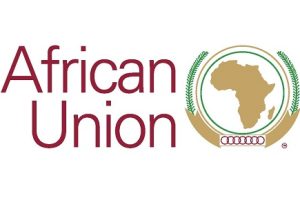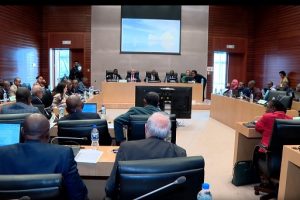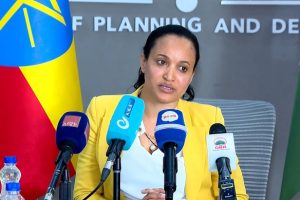
BY SOLOMON WASSIHUN
OAU-AU celebrates its 60th birthday this week. Where does AU stand after two generations? What has it achieved, more than changing its name from OAU to AU? What would the founding fathers of AU like Haile-Selassie, Kaunda, Nkrumah, Nasser, Touré and Nyerere say if they were alive today? Well, their commentary would not be unanimously a complete disappointment. Nor would it be one of appreciation. But it might be somewhere in the middle, no doubt close to one of the two extremes, disappointment.
In his speech at the founding summit of the OAU in May 1963, the first Chair of OAU, Haile-Selassie, expressed optimism that with the creation of a regional body, Africa’s voice would be heard on the international stage. But Africa is still fighting for its permanent seat on the Security Council of the UN. Nor does Africa have a claim to inclusion in the clubs of world economic powers such as the G20.
Similarly, Nkrumah warned the independence of individual African states would not mean much, unless Africans can not forge a strong unified collective political and economic power to withstand the pressure and influence of foreign powers. Within a few years of their rise to power, visionary and charismatic Africanist leaders like, Samora Machel, Tomas Sanchara, Patrice Lumumba, and Nkrumah himself were eliminated under circumstances yet fully unexplained.
60 years after Nukrumkh’s warning, Africa continues to divide. There are more African states now than they were half a century ago. Peace and security is the top issue in several corners of the continent. Africa is still languishing in a war with itself. It is the world’s center stage for endless bloody civil wars, hunger, refugees, coup d’etats, corruption, and utter poverty. Despite its immense agricultural resources, Africa is still the most huger-stricken continent. A recent world bank report says, at least one in five Africans go to bed hungry, and an estimated 140 million people in Africa face acute food insecurity.
Africans are still in the paradox of living in the land of plenty while suffering a life of scarcity. Africa’s economy is wallowing in debt burdens and at the mercy of international monetary agencies which are the tools of a few foreign powers. Africans, irrespective of their gender and age, are on the lookout for opportunities to migrate from their villages and hometowns, risking their lives in search of hope for better tomorrow. Worse than the day of slavery, Africans willingly cross the oceans to live a dehumanized degrading life on other continents compromising their dignity and basic human rights.
African states are still under pressure and interference from the selfish foreign powers, and that has posed challenges for Africans against their right to be masters of their destinies. Despite their claim of sovereignty and independence, African states are still taking instructions on what to do, and prescriptions on how to handle their economy and their domestic affairs. The recent speeches of Kenya’s Ruto and the pan-African intellectual Prof. Lumumba signal how the founding fathers of AU would have reacted to the current realities of Africa today. With candidness rare in the speech of African leaders, The Kenyan president asserted that Africa is yet to earn its rightful place and respect on the world stage. He reminded Africans that their struggle for freedom from the domination and manipulation of external powers is far from over and has a long way to go.
“First, the budget of the AU to a good extent is funded by development partners [external donations]. What does this say about our ability to make our own decisions? It is said,’ he who pays the piper, calls the tune’. Second, we, African leaders, have decided that any engagement with other partners must be an engagement of equals. We have organized ourselves the troika [a group of African negotiators] is going to represent Africa, but what is happening continuously is when others want to engage with us[Africans], they do not want to deal with the Troika. Rather they choose to invite 50 heads of state. Any serious country that wants to engage Africa must respect our architecture.
The most unfortunate thing is that some of the powers who invite us to the meetings, tell us if we do not come, there will be consequences. So all of us are forced to go the meetings” said President Ruto. The pan-Africanist intellectual, Prof Lumumba concurs with Ruto’s point in stressing the need for African nations to stand in unison and develop a collective voice in dealing with development partners and preventing interference from foreign powers.
“We must redefine how we engage with the outside world. As individual countries, we are weak. And the rest of the world wants to deal with us in our weak state. When we are big we can not be manipulable. Besides, we need to see a crusading African Union. For instance, it should not be the Americans and Saudis who summon the warring factions in Sudan to Jeddah. It should have been [AU] in Addis Ababa. We are saying, the bigger we are the better and stronger we are to solve our problems and engage with external powers. This [African Unity] may not be realized in our lifetime.
These are inter-generational struggles. The worst mistake we can make is to lose hope and to despair.”Even with the frustrating conditions, the AU has quite a few feathers in its cap. Despite doubts about its relevance, the regional political body has survived for 60 years, even upgrading from OAU to AU in 2002.
In 2013, AU adopted Agenda-2063, and launched several institutional reforms, which are works in progress. AU has also made impressive and unprecedented measures in tackling the most pressing issues of the continent-the issue of peace and security. AU have executed peacemaking and peacekeeping activities by engaging warring parties both militarily and diplomatically. Since 2003, AU has mandated several peace support operations in Burundi, Sudan, and Somalia. Last year, AU- led a successful peace negotiation that extinguished a two-year war in northern Ethiopia.
In the economic sphere, AU launched the African Continental Free Trade Area, AfCFTA,[one of the 13 flagship projects of Agenda 2063] in which African states remove tariffs on 90% of goods, progressively liberalize trade in services, and eliminate non-tariff barriers, to accelerate regional economic integration, by creating a unified African market. Trading under the Africa Continental Free Trade Area Agreement began on 1 January, 2021. In a nutshell, the 60 years’ journey of AU may be better summarized as a period of struggle to survive rather than thrive. But that does not mean that AU can not thrive and has no potential to be a progressive that can make a difference in extricating the continent from its multifaceted crises.
For that to happen, one major action that should be taken is that AU must be more empowered. That means member states should delegate some of their sovereign power to AU. The other important thing is the escalating interest of foreign powers in Africa’s resources and market potentials necessitates a strong AU as a relevant institution for securing the future of Africa. Africa needs AU to survive and thrive against the growing and sophisticated challenges of foreign interference and domination.
This analysis appears to be more convincing as Africa continues to be divided and weakens with a series of conflicts here and there, and is left increasingly behind in the high-tech race including Artificial intelligence and military technology. During the slavery days, the merchants and explorers came; and in the colonization days, the missionaries and emissaries came, and now the financiers and investors and their humanoid robots are coming to claim Africa, if the latter’s leaders continue to be incapable of a collective response.
And last but not least, AU must reinvent itself as the Union of the African People, as it were, not just the Union of African States. AU should familiarize itself with the broad mass of African people. AU officials should fling open the heavily guarded and fenced gates of their office buildings, and get connected and form partnerships with African professionals and community leaders from all walks of life.
If the African Union cannot reach out to Africans on the streets, in the markets, and in the schools, Agenda 2063 will remain a mirage. What percentage of Africans has heard of Agenda-2063, or knows what the African Union flag is? Recently, a pan-Africanist commentator said, “We are afraid to walk through the street along the headquarters of AU, let alone go inside.”
To achieve the Africa we want as described in the Agenda-2063, and as dreamt by the founding fathers, AU should rigorously revise its 50-year journey and be powerful enough to take bold steps with more vigor and rigor than before, ensuring grass- roots participation.
THE ETHIOPIAN HERALD WEDNESDAY 7 JUNE 2023





